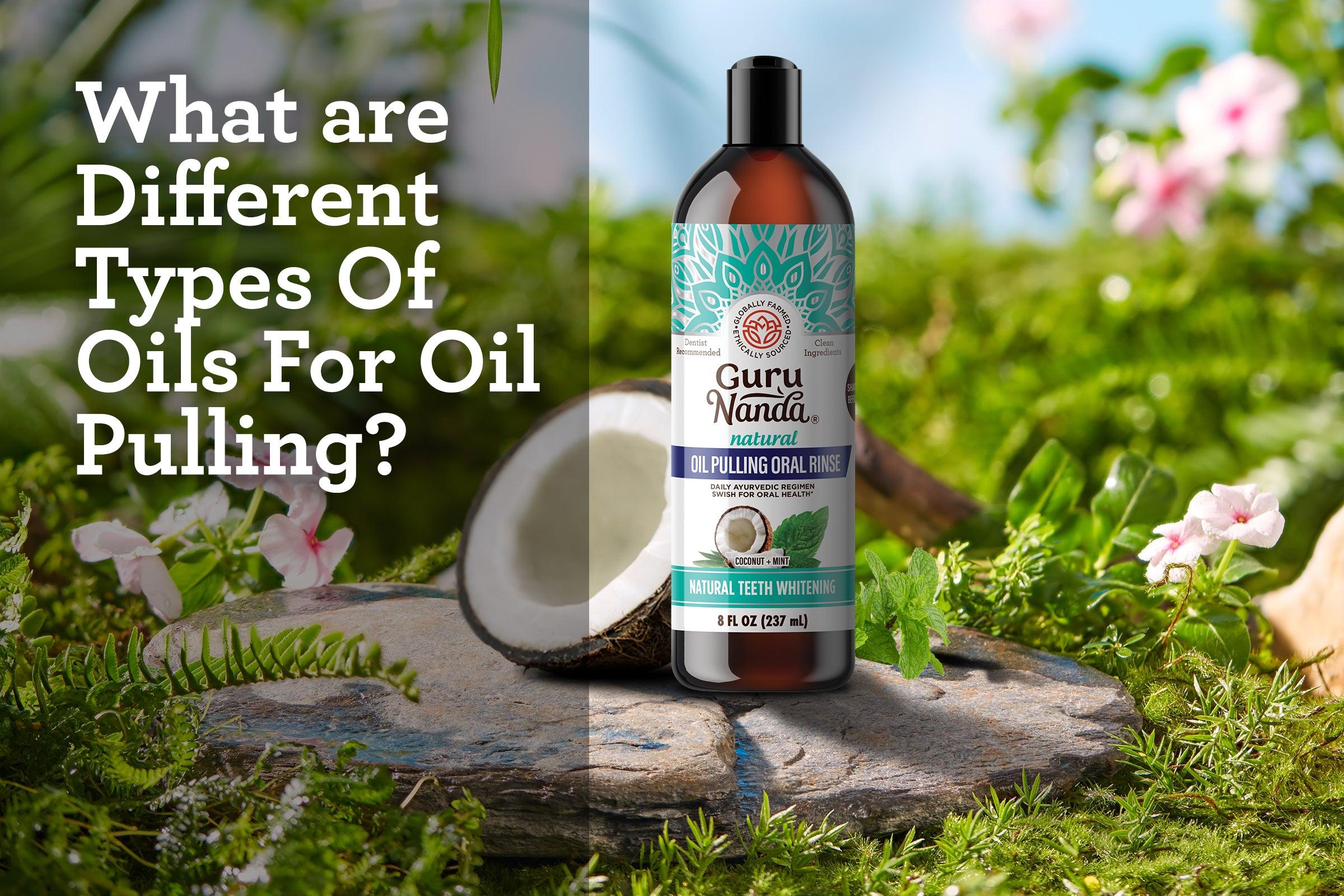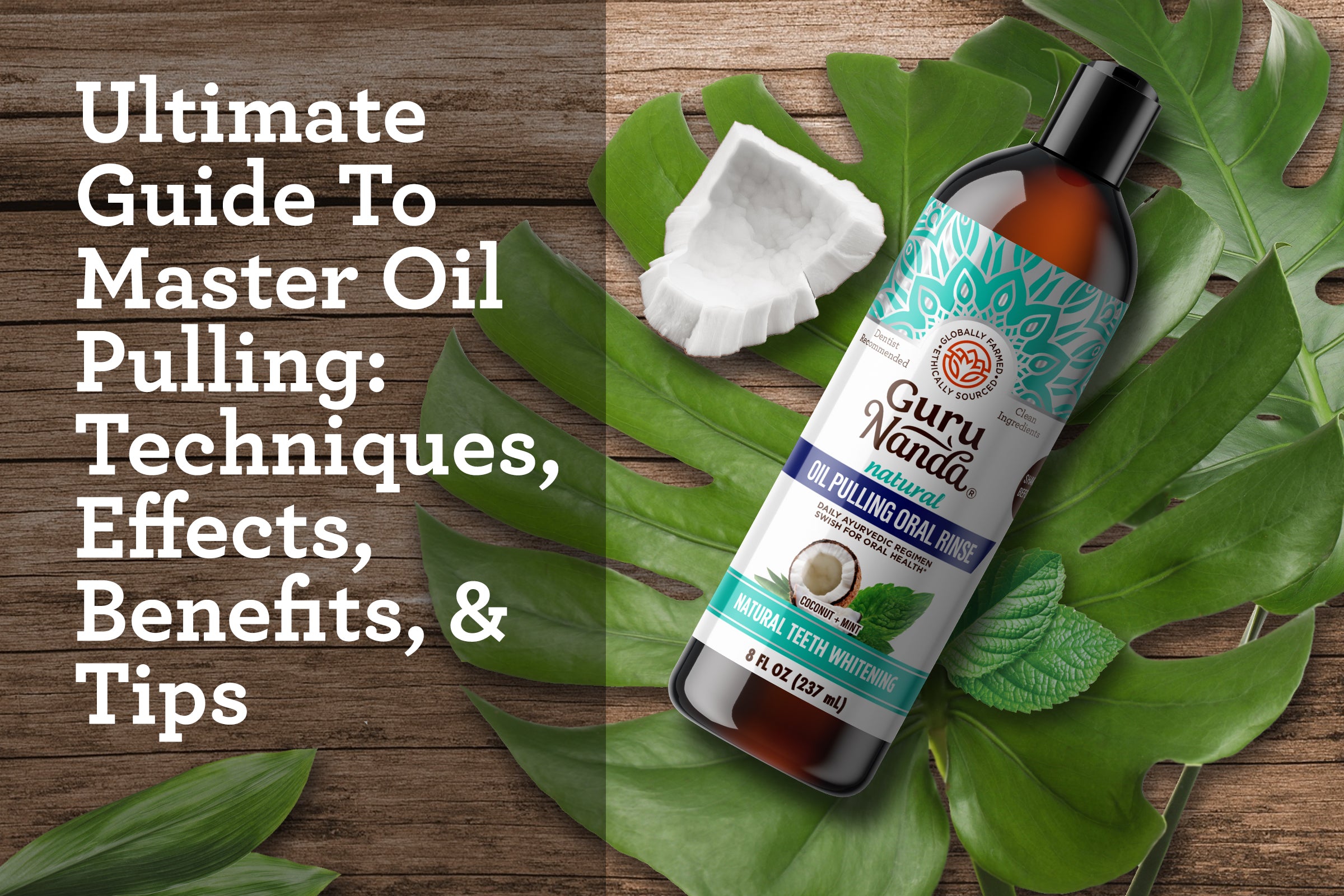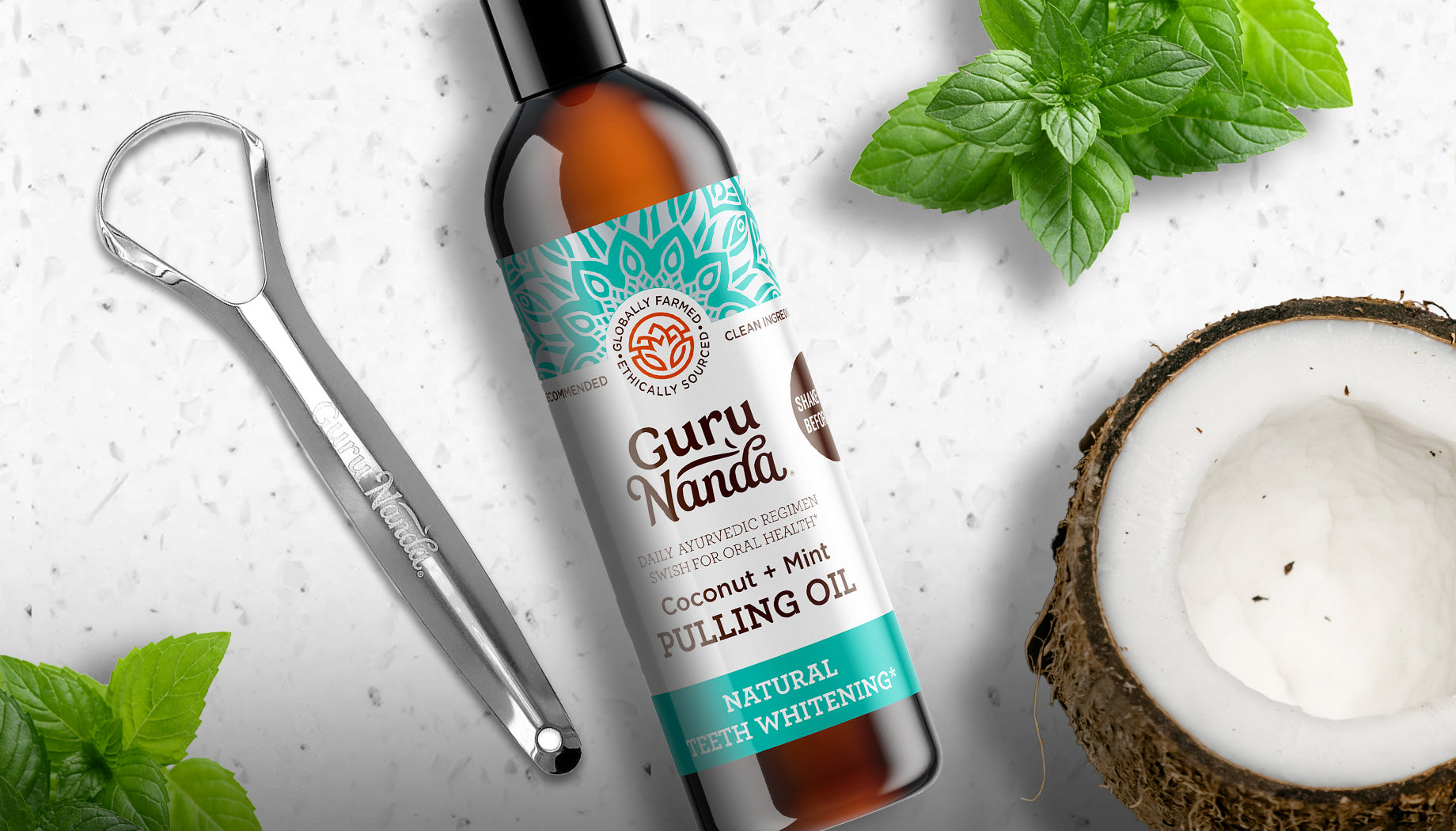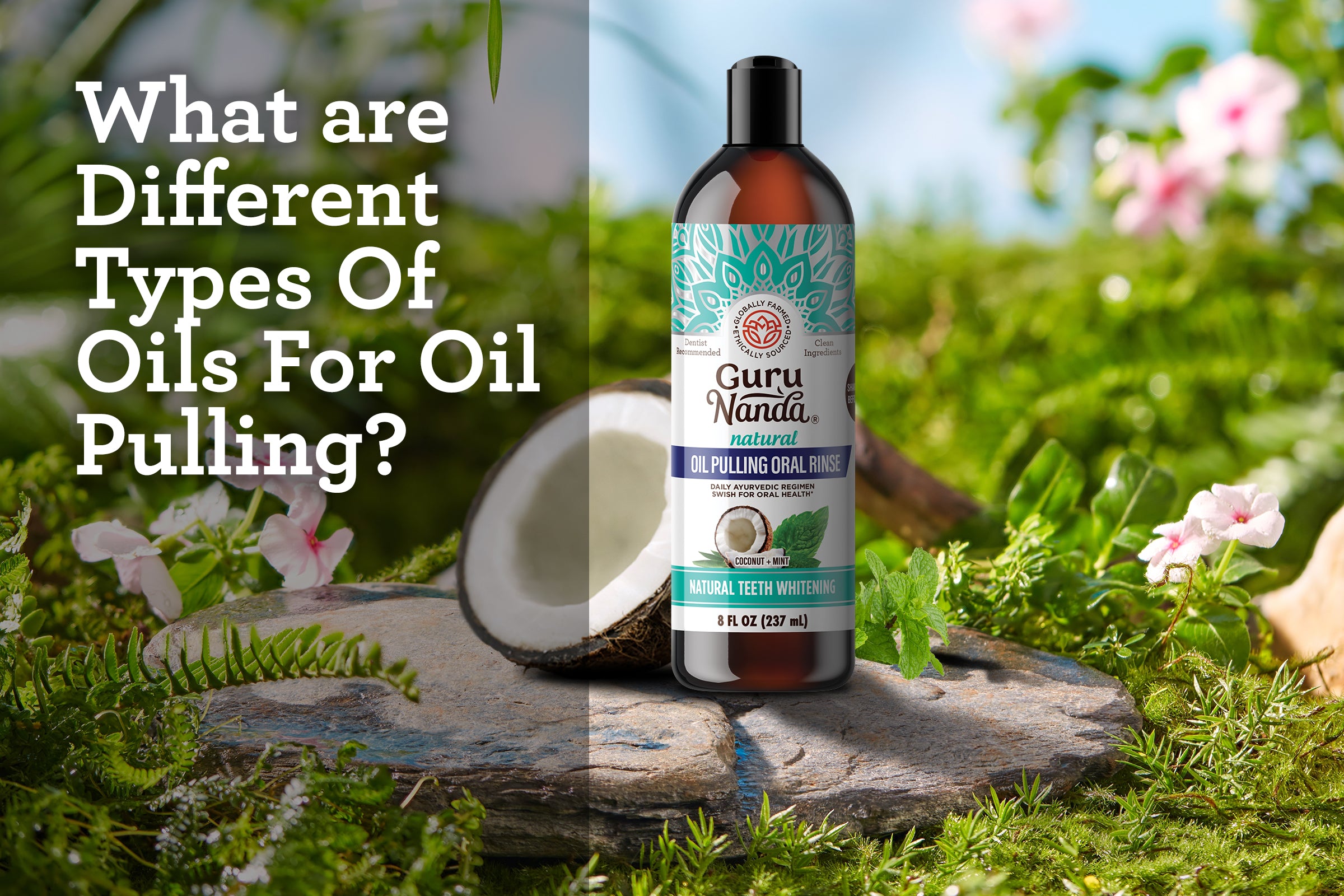- ¿Qué tipo de aceite utilizar para hacer oil pulling?
- Aceite de coco para hacer oil pulling
- Aceite de sésamo para hacer oil pulling
- Aceite de girasol para enjuague bucal con aceite
- Aceite de oliva para hacer oil pulling
- Aceite de almendras para hacer oil pulling
- Aceites esenciales naturales añadidos para mejorar la experiencia del oil pulling
- Conclusión
- Referencias
¿Qué tipo de aceite utilizar para hacer oil pulling?
El oil pulling es una práctica dental tradicional del Ayurveda que consiste en hacer buches con una cucharada de aceite (normalmente de coco, sésamo o girasol) en ayunas durante unos 15 a 20 minutos. Este método es conocido por sus numerosos beneficios para la salud bucal y general. Sin embargo, con tantos tipos de aceites disponibles, puede resultar difícil decidir qué tipo usar para el oil pulling. En este blog, exploraremos las 8 opciones de aceite más efectivas para el oil pulling.
¿Qué tipo de aceite utilizar para hacer oil pulling?
Al elegir un aceite para hacer oil pulling, es fundamental optar por uno sin aditivos ni saborizantes sintéticos para obtener los mejores resultados. La preferencia por un aceite específico suele depender de la preferencia personal y de sus características distintivas. El aceite de sésamo es un favorito tradicional, venerado por su uso prolongado en las prácticas ayurvédicas, mientras que el aceite de coco ha ganado popularidad en los últimos años.
El aceite ideal para el oil pulling es aquel que se puede usar cómodamente con regularidad, sin provocar reacciones alérgicas ni molestias. Practicar el oil pulling de forma constante, independientemente del aceite elegido, es esencial para aprovechar sus beneficios.
Aceite de coco para hacer oil pulling

El aceite de coco es muy apreciado para el enjuague bucal con aceite debido a sus propiedades antibacterianas , eficaces para limpiar la boca y reducir las bacterias. Un estudio destaca su capacidad para reducir significativamente los niveles de la bacteria Streptococcus mutans en la saliva, lo que demuestra sus beneficios para la salud bucal. Su consistencia más espesa, su agradable aroma y el hecho de que se solidifica a temperatura ambiente pero se derrite en la boca lo convierten en una opción fácil de usar. Para quienes buscan mejorar su experiencia con el enjuague bucal con aceite, el aceite de coco fraccionado ofrece una consistencia líquida a temperatura ambiente gracias a la eliminación de ácidos grasos de cadena larga y la retención de triglicéridos de cadena media (MCT), lo que facilita su uso y prolonga su vida útil. Además, es posible encontrar productos para el enjuague bucal con aceite de coco con los beneficios adicionales de aceites esenciales 100 % puros y naturales, como el de menta, que realzan el sabor y hacen que el ritual sea más placentero. Esta versatilidad y variedad de beneficios posicionan al aceite de coco como una excelente opción para quienes desean mejorar su higiene bucal mediante el enjuague bucal con aceite. [ 1 ][ 2 ]
Aceite de sésamo para hacer oil pulling

El aceite de sésamo, valorado en la medicina ayurvédica, es una excelente opción para el enjuague bucal con aceite debido a sus propiedades antibacterianas y su capacidad para reducir las bacterias bucales dañinas. Rico en vitamina E , ácido linoleico y ácidos grasos esenciales, nutre las encías y mantiene la salud bucal. Estudios confirman su eficacia junto con el enjuague bucal con clorhexidina. La fórmula avanzada para enjuague bucal con aceite de GuruNanda puede ofrecer estos beneficios del aceite de sésamo junto con otros aceites esenciales, ofreciendo un enfoque mejorado para esta práctica. [ 3 ][ 4 ]
Aceite de girasol para enjuague bucal con aceite

El aceite de girasol , rico en vitamina E y ácidos grasos omega-6, ofrece beneficios únicos para el enjuague bucal con aceite, como la salud de las encías y la reducción del riesgo de infección. Sus propiedades antiinflamatorias ayudan a aliviar la gingivitis causada por la placa , mientras que su sabor suave y consistencia ligera lo convierten en una opción atractiva para quienes prefieren una experiencia más suave. La Fórmula Original para el Enjuague Bucal con Aceite de GuruNanda puede ofrecer estos beneficios gracias a su combinación de aceite de girasol y otros aceites esenciales, lo que ofrece un enfoque mejorado a las prácticas tradicionales de enjuague bucal con aceite. [ 5 ][ 6 ]
Aceite de oliva para hacer oil pulling

El aceite de oliva, rico en polifenoles, antioxidantes y con un 70 % de ácidos grasos monoinsaturados, ofrece beneficios para la salud bucal, como la reducción de la inflamación de las encías . Sus componentes, como el ácido oleico y las vitaminas A, E y K, tienen efectos antimicrobianos y antioxidantes, lo que lo convierte en una opción beneficiosa, aunque poco popular, para el enjuague bucal con aceite y la prevención del mal aliento. [ 5 ]
Aceite de almendras para hacer oil pulling

El aceite de almendras, valorado por su suavidad y alto contenido vitamínico , puede utilizarse para el oil pulling. Ofrece una alternativa más suave a otros aceites, enriquecida con beneficios nutricionales. Sin embargo, es importante destacar que, si bien los enjuagues bucales con aceite de almendras se asocian con una menor gingivalidad , el aceite de almendras no es una opción muy popular para el oil pulling. Los aceites tradicionales como el de coco y el de sésamo se recomiendan con mayor frecuencia debido a sus propiedades antimicrobianas y antiinflamatorias bien documentadas. [ 7 ][ 8 ]
Aceites esenciales naturales añadidos para mejorar la experiencia del oil pulling
Si bien el oil pulling tradicionalmente utiliza aceites de coco, sésamo y girasol por su extensa historia y beneficios documentados para la salud bucal, también se pueden explorar otros aceites para mejorar potencialmente esta práctica:
Aceite de aguacate para hacer oil pulling

El aceite de aguacate, reconocido por su valor nutricional y sus beneficios para la salud, no es una opción habitual para el oil pulling. Si bien teóricamente podría usarse debido a su contenido en grasas saludables y propiedades antiinflamatorias, varios factores lo hacen menos adecuado para esta práctica. Su consistencia más espesa puede resultar incómoda en comparación con la textura más ligera de los aceites más tradicionales, como el de coco o el de sésamo. Además, no existen investigaciones específicas que respalden su eficacia para el oil pulling. La estructura de ácidos grasos del aceite de aguacate es diferente, y sus ingredientes activos no son los mismos que los de los aceites que se usan habitualmente para el oil pulling, como el de coco o el de sésamo. Por lo tanto, el aceite de aguacate podría no ofrecer los mismos beneficios para la salud bucal que estas opciones más consolidadas.
Aceite de orégano para hacer oil pulling

El aceite de orégano es conocido por sus propiedades antibacterianas, antivirales y antifúngicas, pero debe usarse con precaución. Es extremadamente potente y solo debe usarse en enjuagues con aceite si se diluye considerablemente con un aceite portador como el de coco para evitar la irritación de las mucosas.
Aceite de árbol de té para enjuague bucal con aceite

El aceite de árbol de té es conocido por sus propiedades antimicrobianas. Podría usarse en cantidades muy pequeñas, muy diluido en un aceite portador , para hacer oil pulling. Esto se debe a su gran potencia y a su potencial irritación si se usa incorrectamente.
Es importante tener en cuenta que, si bien algunos de estos aceites pueden usarse para el oil pulling, tradicionalmente se utilizan aceites de coco, sésamo y girasol debido a su amplio historial de uso y sus beneficios comprobados para la salud bucal. Recomendamos encarecidamente considerar posibles alergias y consultar con un profesional de la salud antes de probar nuevas prácticas, especialmente las que involucran aceites esenciales como el árbol de té y el orégano. Para una experiencia de oil pulling más segura y mejorada, considere usar los productos de oil pulling de GuruNanda . Estos están especialmente formulados para combinar los beneficios de los aceites tradicionales con aceites esenciales 100 % naturales adicionales, como el árbol de té y el orégano, lo que garantiza una rutina de oil pulling efectiva y cómoda.
Conclusión
El oil pulling es una práctica ancestral que utiliza diversos aceites, siendo los más populares el de coco, el de sésamo y el de girasol. Alternativas como el aceite de almendras y el de oliva, o incluso unas gotas de aceites esenciales como el de orégano o el de árbol de té muy diluidas en aceites portadores, también son eficaces. Al elegir un aceite para el oil pulling, es recomendable optar por productos con respaldo clínico, que pueden ofrecer beneficios como el blanqueamiento dental o la prevención del mal aliento. Un producto destacado es Aceite bucal GuruNanda CocoMint , clínicamente probado para combatir el mal aliento y blanquear los dientes, además de contener la bondad de 7 aceites esenciales junto con vitamina D3, E y K2.
[1] - https://www.ncbi.nlm.nih.gov/pmc/articles/PMC5654187/
[2] - https://www.ncbi.nlm.nih.gov/pmc/articles/PMC7475120/
[3] - https://www.ncbi.nlm.nih.gov/pmc/articles/PMC4290321/
[4] - https://www.ncbi.nlm.nih.gov/pmc/articles/PMC9573514/
[5] - https://www.ncbi.nlm.nih.gov/pmc/articles/PMC5198813/
[6] - https://www.ncbi.nlm.nih.gov/pmc/articles/PMC4382606/












